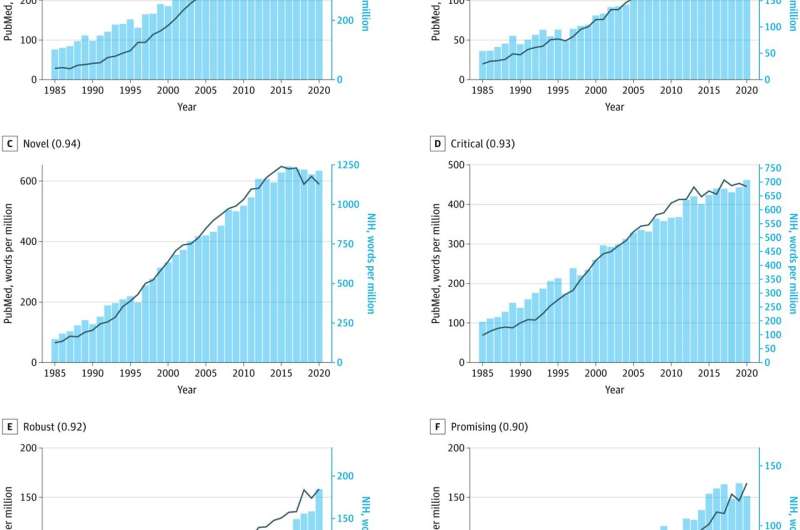This article has been reviewed according to Science X's editorial process and policies. Editors have highlighted the following attributes while ensuring the content's credibility:
fact-checked
peer-reviewed publication
trusted source
proofread
Increasing levels of 'hype' language in grant applications and publications

The success of scientific endeavors often depends on support from public research grants. Successful applicants increasingly describe their proposed research using promotional language ("hype"); however, it remains unclear whether they use hype in their subsequent research publications.
A research team led by the University of Tsukuba analyzed all published research abstracts of projects funded by the U.S. National Institute of Health (NIH) from 1985 to 2020. The analysis covered 139 hype adjectives emphasizing significance (e.g., imperative, paramount), novelty (e.g., revolutionary, ground-breaking), scale (e.g., massive, vast), rigor (e.g., careful, sophisticated), utility (e.g., impactful, seamless), attitudes (e.g., incredible, exciting), and the gravity of problems (e.g., dire, devastating).
A dramatic growth in almost all hype terms was found over the 36-year period. Furthermore, the usage trends of hype adjectives were closely correlated with the usage trends in NIH funding applications during the same period. This finding suggests that the language choices of investigators at the grant application stage affect the subsequent presentation of research findings.
The study, published in JAMA Network Open, indicates the role of funding mechanisms in shaping the tone of research communication. Recognizing the concerns surrounding increasing levels of hype, funding bodies are urged to not nudge investigators towards salesmanship.
More information: Neil Millar et al, Promotional Language (Hype) in Abstracts of Publications of National Institutes of Health–Funded Research, 1985-2020, JAMA Network Open (2023). DOI: 10.1001/jamanetworkopen.2023.48706




















